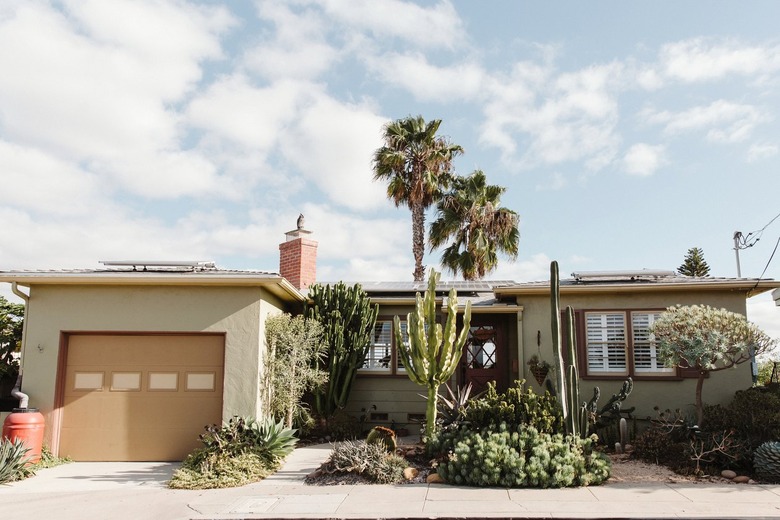5 Steps To Prepare For Your First Home Purchase
Purchasing a home can feel like a huge, daunting task, but it doesn't have to be. As long as you have a plan in place, the right people on your side, and know exactly what you need to do to prepare for a home purchase, you should be golden. Just take it step by step. To help define those steps, we reached out to real estate professionals for their expert advice.
1. Take a hard look at your finances and budget.
1. Take a hard look at your finances and budget.
"Before you start looking at homes, look at your finances," Kerry Melcher — an in-house real estate expert and head of brokerage and sales at Opendoor — tells Hunker. "This is the time to be as objective as possible and understand what you can afford. A mortgage lender will help you understand what you can afford and what your maximum is, but your job is to figure out your personal limits and preferences."
Mason Miranda, a credit industry specialist at Credit Card Insider, tells Hunker that this is also the time to create a budget and start saving as much as possible. "Include your debt-to-income ratio (DTI) in your budget so you know where you stand when it comes to other outstanding debts," he advises, adding that if you have a lot of debt, make sure you pay off as much of it as possible before applying for a mortgage.
To get a better idea of how much money you'd need to save for a mortgage, Melcher recommends the following mortgage calculator.
2. Review your credit and get pre-approved for a loan.
2. Review your credit and get pre-approved for a loan.
Miranda states that in order for a mortgage lender to determine if you qualify for a mortgage, they will look at your credit history. "If your credit scores are low, take time to rebuild them," he says. "The higher your credit scores, the more mortgage you'll qualify for and the lower your interest rates will be."
"After you've made sure you have the best credit score possible, you should look into getting pre-qualified for the mortgage with a lender," Adem Selita, CEO and co-founder of The Debt Relief Company, tells Hunker. "They will typically require you to provide any investment assets you have, bank statements, W-2s, and other proof of income, paystubs, etc. Remember that once you have done a hard credit pull, you have 60 days to shop around among lenders to get the best rate possible."
3. Consider who you want on your team.
3. Consider who you want on your team.
"Get a great real estate agent to represent you," KaraLee Foat, a realtor and broker, tells Hunker. "Make sure you are clear on who is a fit and how they can best serve you in the purchasing process. Make sure you rely on them and trust them to walk you through the process."
Oren Farkash, the founder and CEO of Los Angeles's South Land Remodeling, tells Hunker that you might also want to consider hiring a contractor. "The buyer can take the contractor with them to tour the home and get a better sense of construction possibility, cost, timeline, etc," he says. "This can save a ton of money and prevent headaches after the purchase." Hiring a contractor would be especially beneficial if you're planning to remodel the home after purchasing.
4. Research and view homes — and take your time.
4. Research and view homes — and take your time.
Never rush when it comes to a purchase as significant as a home. Instead, Nick J. Kyte, a real estate sales representative, recommends taking your time to consider what you truly want out of the following three criteria: location, price, and style/condition.
Once you've found homes you'd like to see, go to their open houses or schedule a time to view them. Your real estate agent can help you with this process, so that when you find a home you like, you can properly negotiate the price and place an offer.
5. Be prepared to deposit earnest money.
5. Be prepared to deposit earnest money.
"An earnest money deposit is the best way of communicating to the seller that you're serious about purchasing their property," explains Kyte. "The deposit is kept safe in a trust account until those funds are used to close the transaction. This goes towards the purchase price."
According to The Mortgage Reports, earnest money deposits range from 1-2% of the purchase price. You'll want to make sure you have this money ready to be submitted via check.
